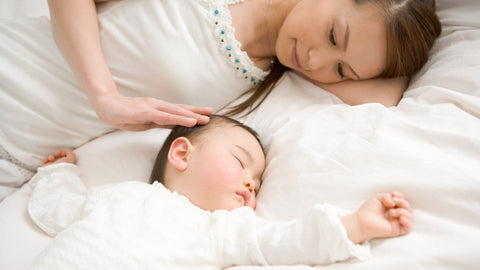
Sleep and your mental health
Sleep and your mental health
ZZZs & YOUR MENTAL HEALTH
Sleep, oh glorious sleep. On average, people need between 7 – 8.5 hours of sleep. Obviously catching one solid block of sleep can be more difficult if you have babies/children interrupting you through the night. The result of fragmented sleep? Sleep deprivation. While some parents say they can just “push through” sleep deprivation and, in fact, may “get used to it”, we need to consider the effects – some of which are unsafe.
As we know, sleep is important for both physiological and psychological well-being.
Specifically, sleep has been shown to:
- improve your general health such as restoring energy, repairing injuries and recovering from illness
- improve your mood
- reduce anxiety, worry, panic attack symptoms, obsessive thoughts and urges to engage in impulsive or compulsive behaviour
- reduce irritability and conflict within relationships (including with your beloved children and partners) due to feeling more patient and thinking rationally in stressful situations
- increase your cognitive functioning such as concentration, decision-making and memory. Impaired judgement and reaction time are major consequences. They can be dangerous for driving your precious family or even multi-tasking around home (e.g., choosing to cook while bathing your kids etc.).

Unfortunately, even when babies/children are sleeping well, some parents experience insomnia. Insomnia affects 15-30% of adults and may include:
- difficulty falling asleep,
- difficulty maintaining sleep (waking through the night with no external cues) and/or
- early waking without returning to sleep (again, non-child related).
Some general recommendations for making the most of sleep opportunities include the following:
- When possible, establish a regular sleep pattern for yourself (e.g., same bedtime and waking hours when possible).
- Experiment with your own day naps. Do they interfere with your ability to drift off to sleep at night? If yes, maybe you’re napping for too long (20-30 mins can be a helpful duration). Or maybe you’re napping too late (it is ideal to avoid napping after 3pm). If these nap schedules aren’t working, perhaps flag your day naps altogether – just lying down and resting in a quiet space will re-energise you enough to get through the rest of the day.
- Avoid/reduce nicotine, alcohol, caffeine and sugar (well, as much as humanly possible!) from late afternoon – these substances and stimulants really do affect the quality of your sleep leading to a more fitful, less refreshing sleep.
- Reduce exercise directly before bedtime.

- Establish a personalised, helpful bedtime routine (e.g., bath/shower, brush teeth, read book in lounge, listen to calming music, use relaxation/breathing exercises). This may involve curfews (setting an alarm on your mobile is a good external cue) to stop discussing serious topics with your partner and to discontinue activities.
- Reduce stimulation in the bed/bedroom if possible – that includes TV, mobiles and sometimes even books – you will know your individual triggers.
- Stop clock-watching.
- Challenge unhelpful sleep beliefs, for example, high expectations that you ‘should’ get to sleep immediately when in bed (this will obviously lead to frustration if you can’t). Resting is good enough.
- Delay problem-solving your worries until it is an appropriate time.

We cannot underestimate the power of sleep on your mental health. Sleep deprivation is not something to be ignored. I would recommend a baby sleep consultant if you are struggling with your baby’s/child’s sleep, especially when it is affecting your functioning and safety. Please also let me know if you would like help with your insomnia, anxiety or low mood.
Happy ZZZ-ing!
Emma Purdue
Emma is the owner and founder of Baby Sleep Consultant, she is a certified infant and child sleep consultant, Happiest Baby on the block educator, has a Bachelor of Science, and Diploma in Education. Emma is a mother to 3 children, and loves writing when she isn't working with tired clients and cheering on her team helping thousands of mums just like you.
Our Baby Sleep Program helps tired parents TO DEVELOP HEALTHY SLEEP HABITS BY FOCUSING ON NAPS, SETTLING AND NIGHT SLEEP.
- Empowered: Feel empowered as a Mum as you learn to understand your growing baby's needs and cues.
- Simple effective settling: Gentle, proven self settling, evidence based techniques.
- Content happy baby and parents: Better sleep creates content babies & happy parents.
- Freedom: Predictable routines and longer nights creates freedom. Solve your sleep problems for more freedom.
- Work with your babies circadian rhythm: Work with your babies biological clock for faster easier results.
- Awesome naps & nights: You'll create consistent naps and nights with our support.


 Book Online
Book Online




